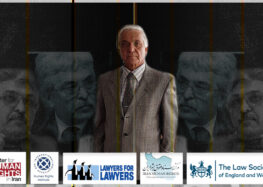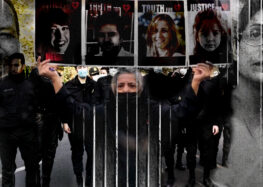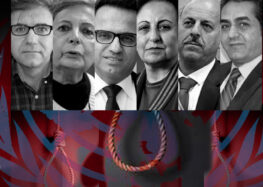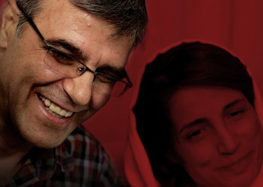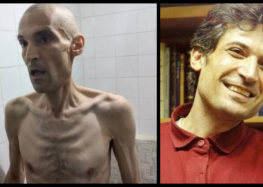Ebadi Calls on UN High Commissioner for Human Rights to Act
Lawyer Sentenced to Nine Years for Founding Human Rights Group
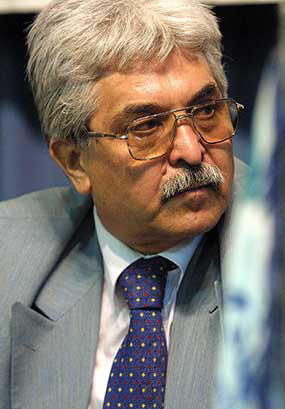 (31 October 2010) The Iranian Judiciary should end its systematic targeting of human rights defenders and lawyers who are being sentenced to lengthy prison terms solely for their human rights work and defending their clients, Shirin Ebadi said today in a joint statement with the Iranian League for Defense of Human Rights (LDDHI) and the International Campaign for Human Rights in Iran.
(31 October 2010) The Iranian Judiciary should end its systematic targeting of human rights defenders and lawyers who are being sentenced to lengthy prison terms solely for their human rights work and defending their clients, Shirin Ebadi said today in a joint statement with the Iranian League for Defense of Human Rights (LDDHI) and the International Campaign for Human Rights in Iran.
On Saturday, 30 October, Branch 15 of Tehran’s Revolutionary Court sentenced prominent lawyer Mohammad Seifzadeh to nine years in prison and a ten year ban from practicing law. Seifzadeh is charged with “acting against national security” by “establishing the Defenders of Human Rights Center (DHRC).” Abdolfattah Soltani and Mohammad Ali Dadkhah, two other co-founders of DHRC are also under prosecution for similar charges.
Nasrin Sotoudeh, another lawyer affiliated with DHRC, has been in detention since 4 September 2010, and held in solitary confinement. Mohammad Oliyaiefard, another lawyer, is serving a one year sentence for having interviewed with the press regarding the case of one of his clients.
In an interview with LDDHI and the Campaign, Seifzadeh said: “I believe this ruling is not worded in proper legal language. It seems to be more of a partisan or political statement against a human rights organization. Judging by the words used, this statement demonstrates how much the gentlemen hate human rights. They said we were “supposedly” active in the field of human rights. Because we wrote letters to authorities, criticizing the justice system’s conditions, or made suggestions for correcting the laws, or represented those who were pursued by the Judiciary, [they have concluded] that we have committed crimes. These actions, however, were a part of the people’s rights, the Center’s duties, and our duties as their lawyers.”
“As you can see, the gentlemen consider defending people’s rights and legal activities as crimes. Which one of these activities is a crime, warranting the charge of “acting against national and regime security” in the verdict? I am addressing the same regime when I ask that the laws need to be changed. I am addressing the same regime when I say that the summonses are not in accordance with the law. Please note that when prominent lawyers of this country, such as Ebadi, Dadkhah, and Soltani practice law according to the law, in the gentlemen’s eyes they are committing a crime,” Seifzadeh added.
Nobel Laureate Shirin Ebadi said, “This unjust sentence demonstrates that the Iranian Judiciary’s independence is vanishing with each passing day. Noting the 1999 UN Declaration on Human Rights Defenders, I call on the High Commissioner for Human Rights to react to this development, and request that she recommends acquittal of Mr. Seifzadeh and reminds the Iranian government of its obligations under the Declaration.”
Karim Lahidji, president of LDDHI and vice-president of the International Federation for Human Rights (FIDH), reacting to Seifzadeh’s prosecution, said, “ For the first time, a lawyer is being sentenced to prison and banned from practicing his profession solely for human rights work and defending clients. Banning him from practice is in clear contradiction with the independence of the Bar Association. The only institution that can issue such a sentence, banning a lawyer temporarily or permanently from practice, lies with the Disciplinary Court for Lawyers, and not the Revolutionary Courts.”
Ebadi and the two human rights organizations expressed their deep concern at the ongoing systematic persecution of human rights defender and its chilling effect on the ability of lawyers to provide proper defense for their clients.
“How can there be any semblance of due process for defendants when their lawyer can end up in jail for years simply for doing his job?” asked Hadi Ghaemi, the spokesperson for the International Campaign for Human Rights in Iran.

